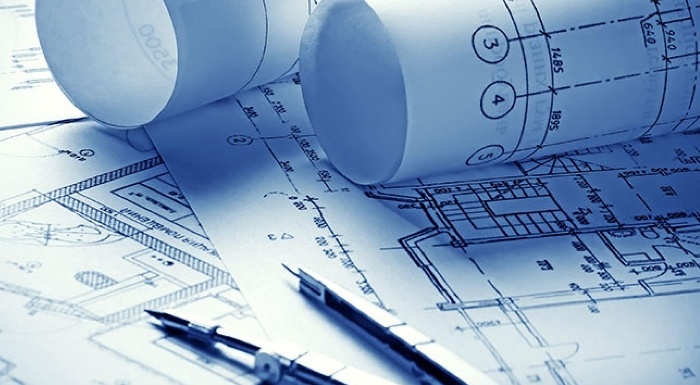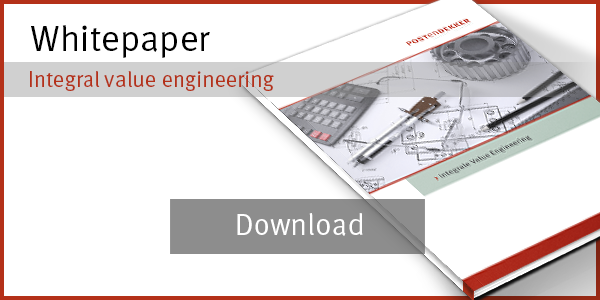
Many organisations have invested in their product portfolio for years in order to conquer or maintain their place in the market. However, because of growing competition, the supply of similar, cheaper and/or better performing products, has increased. Because of this, margins have been placed under pressure.
You can face competition in two ways. First, there is the possibility to invest even more in research and product development. But it would be even smarter to make the present portfolio more attractive by means of redesigning and/or cost reduction. This latter option is best approached by means of integral value engineering. In this article I will explain what value engineering entails and how you can arrange for an integral approach.
Integral value engineering is a way to reduce your cost price while maintaining the market value of your product. Focus will be on the reduction of integral costs while retaining form-fit-function, minimal amount of time for requalification and short payback time of the effort. With value engineering the investments and risks stay low and lead time short. Moreover, there is already a client base, so there does not have to be any effort in that field.
Value analysis and value engineering, are inextricably linked. Value analysis happens on the basis of existing or realised product and can be the start of value engineering. Value engineering is part of the integral design process of a product. In case of redesign, value analysis is necessary and this is precedes value engineering.
Goal is to identify the possibilities to in order to achieve unchanging functionalities at lower costs. Also, with lower costs as first priority people often soon realise that it is important to look for an optimisation of value in relation to costs. Changes and austerity measures will so influence other matters that are also of value. Value engineering can be applied to complete products, but also on the level of components or modules and on system level.
An integral approach with value engineering
In order to be able to make the right considerations an integral approach with regard to value engineering is necessary. With ‘integral’ we mean ‘looked upon across the entire chain’. In this respect we not only look at the direct material costs, but, for example, also at the costs for making the offer, the costs for storage space, management costs of the product by engineering, management costs of MRP rules, the costs of the service division, et cetera.
Across the entire chain, stakeholders and users can be pointed out who all have their own voice and interests. The concept ‘value’ is often different for all these parties. Deviant interests often provide a different perception of value, when making choices is it of importance to make a proper integral choice and so include the entire chain.
In the whitepaper Integral Value Engineering, we present several examples of various interests among the parties, stakeholders and users involved.
The 5 phases of the integral method
The integral method with value engineering can be divided into 5 phases:
- Inventory phase: In this phase we define the area in which we look for solutions.
- Brainstorm phase: In this phase the core team will use the collected information from phase 1 to come up with ideas.
- Evaluation phase: In this phase you will test the ideas from the brainstorm phase with knowledge carriers from within and outside the organisation.
- Realisation and validation phase: In this phase the ideas are developed and validated to the project objectives.
- Implementation phase: In this phase all ERP and/or MRP systems are filled in and the transition will be prepared.












